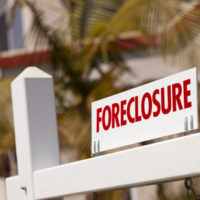What Is a Tax Sale of a Pennsylvania House?

All homeowners are familiar with property taxes because they are an unavoidable aspect of home ownership. Some homeowners chose to incorporate the cost of their property taxes into their mortgage payment and have the bank make the tax payment, while others prefer to make the annual payments themselves. However the payments are made, it is important for the homeowner to ensure the payments are made in order to avoid losing the home.
Homes in Pennsylvania can be sold at either an upset tax sale or a judicial tax sale in order to pay off any delinquent taxes. These sales are not unlike a foreclosure action in that the homeowner faces the possibility of losing his home unless he pays the outstanding taxes before the sale. However, unlike a foreclosure, a tax sale still leaves the homeowner responsible for the balance due on the mortgage. Many mortgage agreements come with clauses that require the homeowner to keep up with the property taxes and insurance payments on the homes that serve as collateral for the mortgage.
When the house is sold at a tax sale, it is sold subject to the outstanding liens, such as the mortgage owed by the owner of the house. This does not mean that the new owner is now required to pay the mortgage on the house. The original homeowner continues to be responsible for the mortgage. However, the new owner cannot pass on clean title to the home to another buyer. The property would continue to serve as collateral for the mortgage until the mortgage is paid off.
The goal of the tax sale is not to necessarily sell the home for an amount of money that would cover the mortgage owed and cover the unpaid taxes and any other costs associated with the sale. The opening bid at a tax sale is supposed to cover the tax related costs. If a higher price is bid, the home will be sold for the higher bid, however, this is not the primary goal of the sale.
Before a home can be sold at a tax sale, the homeowner must receive notice of the sale in order to be given a chance to pay the outstanding taxes or to otherwise challenge the tax sale. If a homeowner lives in the home that is subject to a pending tax sale, the homeowner must be given notice in person before the home is sold at a tax sale.
If the homeowner cannot afford to pay off the taxes owed in one payment, he can enter into an agreement to make payments in installments. The taxes owed can be spread out over four payments, and must be paid in a year.
Contact Us for Legal Assistance
Many defenses that may be applicable when fighting a foreclosure would not be available when it comes to stopping a tax sale of your home. If you are about to lose your home to foreclosure or a tax sale, you should speak to an experienced attorney who can explain the differences between the two actions, and how you may be able to fight to keep your home. Contact us at the law firm of Louis S. Schwartz, Attorneys at Law to speak to a Philadelphia foreclosure defense attorney.
Resource:
govt.westlaw.com/pac/Document/NF1BCA2F0343A11DA8A989F4EECDB8638?viewType=FullText&originationContext=documenttoc&transitionType=CategoryPageItem&contextData=(sc.Default)
